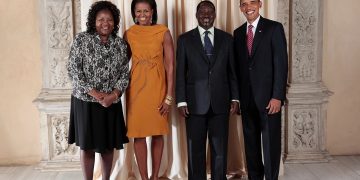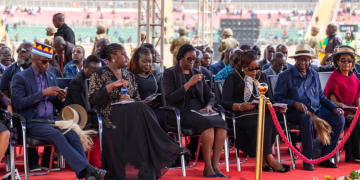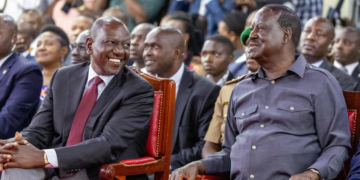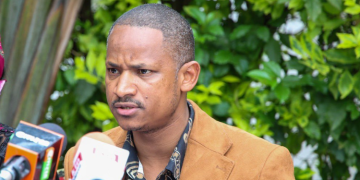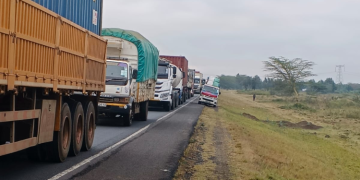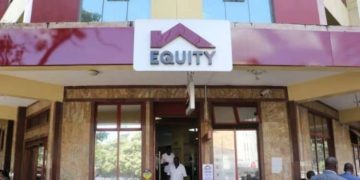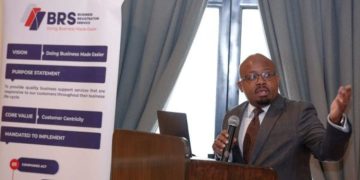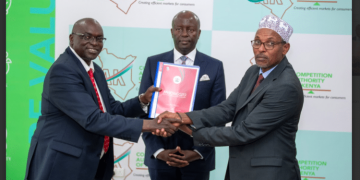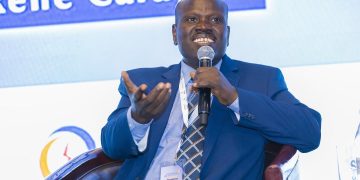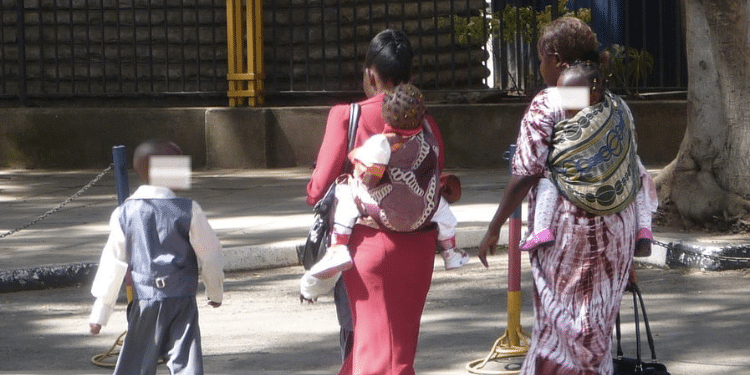When Veronica Mwende became pregnant at 19, while awaiting her Kenya Certificate of Secondary Education (KCSE) exam results, her world shifted dramatically.
Uncertainty, shame, and fear were her day-to-day reality. At just 20 years old, she became a mother. Walking into university with a visible pregnancy meant stares, whispers, and relentless stigma.
Nguvu Change Leader Veronica Mwende tells The Kenya Times Correspondent Joy Kwama that the emotional toll was immense.
However, instead of giving up, Veronica chose to fight.
When did you become a young mom, and how did it shape your path?
I became a mother at 20, but my journey started at 19 when I got pregnant while waiting for my KCSE results. The Society judged me harshly, but my mother’s unwavering support kept me grounded.
I joined university while pregnant, determined not to let my dreams die. That experience, being both a student and a mother, opened my eyes to the challenges many young mothers face. It ignited my passion to advocate for teen mothers, challenge stigma, and push for inclusive education policies.
What were some of the challenges you faced as a teen mom Veronica?
The emotional burden was the hardest. I battled depression, stress, and self-doubt. Walking into university pregnant wasn’t easy, the stares, the whispers, the assumptions, it was constant.
After giving birth, I had to be separated from my baby to focus on school. That was incredibly painful.
I missed my child every day. Balancing schoolwork and motherhood were overwhelming. Some days I didn’t think I could do it, but I kept going.
Also Read: Meet Monicah Mwalo, Woman Behind Kenya’s Electric Motorbikes
Was there a specific turning point when you decided to advocate for others like you?
Yes. The turning point was realizing I wasn’t alone.
I met other young moms who were silently struggling. I began sharing my story and was shocked at the number of girls who said, “Thank you for saying this.”
That was when I knew I had to use my voice. I started volunteering, speaking at forums, and co-leading Great Ladies CBO. My journey turned into my mission.
How did you find your voice in a society that often silences young mothers?
I started by owning my truth. Once I stopped feeling ashamed and saw my story as a source of strength, everything changed.
Support from women-led organizations, safe spaces like Women Volunteers for Peace, and mentors helped me gain confidence.
Writing, public speaking, and media features gave me platforms to amplify my voice. I always imagine speaking to the younger version of myself, that gives me courage.
What does equal access to education mean in your advocacy work?
It means building systems that don’t discard girls once they become mothers. It means functional re-entry policies, flexible school schedules, childcare options, and compassionate counselors.
Education is a right, not something that should be taken away because of pregnancy. Young mothers have dreams too.
Also Read: Periods with Pride: Amina Guyo’s Fight for Menstrual Dignity in Northern Kenya
How do you support young moms who are balancing school and childcare?
Through mentorship, peer support groups, mental health sessions, and sometimes material help like pads and baby essentials.
We have also advocated with schools to accommodate teen moms.
Personally, I counsel fellow students through peer programs at the university. We also visit teen moms to talk about self-care, time management, and going back to school.
What kind of support systems did you wish existed for you back then, and are you building them now?
I wish there were centers offering counseling, safe housing, childcare, and academic support under one roof.
That is the vision I’m pursuing through Great Ladies CBO.
We are creating safe spaces for healing, learning, and sisterhood. We’ve planted the seeds, and, with time and resources, we’ll grow.
How do you handle judgment or stigma while doing your advocacy work?
I wear my truth with pride. Stigma still exists, people question your morality, your capabilities, but I answer with action.
Every girl I help, every policy I influence, every talk I give is proof that we are not our past. I also practice self-care, surround myself with positivity, and lean on my sisterhood.
Conversations around reproductive health are still taboo in many communities. How do you start these conversations with young people?
With honesty and relatability.
I start by sharing my story, which helps break the ice. We use storytelling, art, peer education, and safe spaces to encourage open conversations.
We also train youth advocates to lead these discussions in their own circles.
What’s one thing you wish policymakers understood about young mothers in Kenya?
That motherhood doesn’t end a girl’s future, unless systems make it so.
Young mothers are resilient and full of potential. They need support, not shame.
We need real reintegration programs, accessible childcare, and youth-friendly reproductive health services.
Follow our WhatsApp Channel and X Account for real-time news updates.


